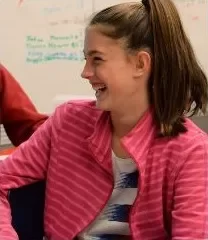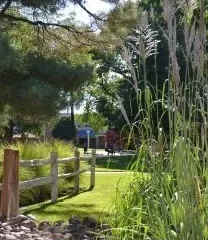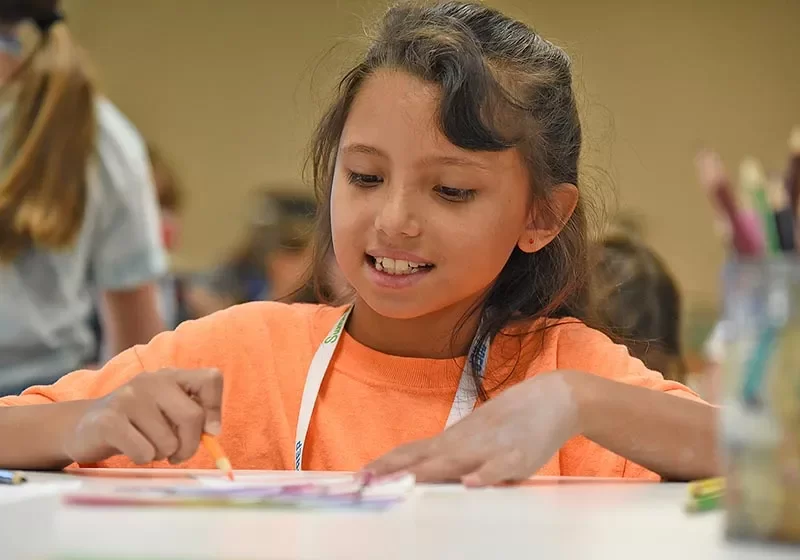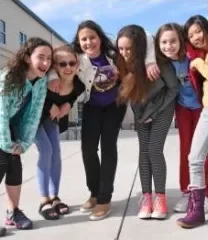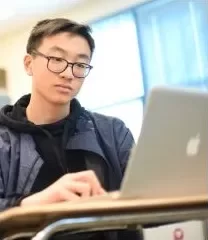What Lights Them Up Inside: Helping Students Develop a Sense of Purpose
January 20th, 2025
January 20, 2025
Hello Sandia Prep Community,
Happy 2025! I hope you all had a wonderful winter break and have enjoyed a great start to the new year. I was happy to spend some time outdoors with my family, walking, skiing, running, and hiking. I’m so grateful to live in a part of the world where we have easy access to get outside and am looking forward to exploring even more of what New Mexico has to offer in the coming months and years. I’ve always found that the time I spend outdoors leads to moments of clarity, inspiration, and purpose.
Like most people, I like to use the new year as an opportunity to reflect on the previous years and make plans and goals for the years ahead. When I look back over my career in education, I find a common thread going all the way back to my days in graduate school, and that is the importance of authentic, purpose-driven experiences. I remember for my Master’s thesis at Columbia, I wrote that in education, the goal should not be solely to teach content but rather to use content as a tool through which to teach skills and mindsets.
In 2010, Heidi Hayes Jacobs published Curriculum 21: Essential Education for a Changing World, which addressed the best ways to prepare students for their future. In her book, she argued that employers are not looking for the people who have memorized the most material but rather people who can grapple with ideas, who can work together, who can think creatively. She called these skills “21st Century Skills.” I completely agreed with everything she said when I heard her speak, though I was amused that a) we were already a tenth of the way into the 21st century and b) I had written something similar for my aforementioned thesis (in the 20th century), and John Dewey argued similarly nearly a century earlier. The reasoning, however, was particular to the time period: since students now had greater access to information through the internet, it was even more necessary to cultivate the skills to work with that information.
Less than a decade after Curriculum 21 was published, educators began using the term “Fourth Industrial Revolution,” an era that we are still in. As the name implies, this means there have been three industrial revolutions before this. The first occurred in the 18th century with the advent of steam power. The second, at the turn of the 20th century, involved mass production and adoption of early technology. The 1970s ushered in the third with an enormous increase in computer and internet use. And the fourth, which is occurring right now, involves artificial intelligence and automation. Essentially, we have been able to create machines that can do many of the jobs we used to need humans to do, and so the kinds of jobs that exist now are vastly different than even 20 years ago and will be even more different in 20 years. The World Economic Forum just published their latest “Future of Jobs Report,” which lists core skills needed in 2025 as follows: analytical thinking; resilience, flexibility, and agility; leadership and social influence; creative thinking; motivation and self-awareness; technological literacy; empathy and active listening; and curiosity and lifelong learning. As artificial intelligence expands its abilities, the skills needed from humans are increasingly, well, human.
Even before we knew how prevalent artificial intelligence would become, Sandia Prep has believed in developing these skills, and this is, I know, why I was drawn first to teach here in the 1990s and later to return to lead the school in 2022. Prep has always viewed students as whole humans and has believed in them and their ability to make a mark. One way we have done that is to encourage students to discover a sense of purpose. Purpose provides a lens through which students can view their education at Prep not as a series of isolated classes or assignments but as an interconnected journey with real-world implications. It gives meaning to the knowledge and skills they acquire, tying them to something larger than themselves.
At Sandia Prep, we believe that helping students find purpose is not a secondary goal of education—it’s central to everything we do. Our proposed Impact Lab is a perfect example of how this philosophy can be effectively put into practice. Through the Lab, students will engage with real-world problems, collaborate with community partners, and see firsthand how their ideas and efforts can make a difference. These experiences are designed not only to build skills but also to help students understand how their passions can translate into meaningful contributions to the world around them.
Of course, finding purpose is not just about academics or career preparation. It’s also deeply tied to self-awareness and personal fulfillment. One of the greatest gifts we can give our students is the time and space to explore who they are, what they care about, and how they want to make an impact. Whether through outdoor education, service projects, artistic endeavors, or simply moments of quiet reflection, we aim to provide a wide array of opportunities for students to discover what lights them up inside.
After reading and reflecting about how important purpose is in our lives, I enlisted the help of our podcast crew from SPRI (Sandia Prep Radio International) to embark on a little experiment. We roamed around campus and asked several students and faculty a question: If you could wave a magic wand to change one thing that would make the world better, what would you change? We received all sorts of answers, from slowing climate change to ending homelessness to instilling peace worldwide. We then asked a follow-up question: What’s one small step you can take towards that change? As it turns out, this activity has been proven to help people feel a sense of hope and a sense of purpose. The big picture question helps them clarify what’s important to them, and the follow-up question helps them feel a sense of purpose - the feeling that they can make a difference, even when it comes to large-scale issues. If you’d like to listen to that podcast, here’s the link.
As we launch into 2025, I hope we all -- students, parents, faculty, and alumni -- can reflect on the role purpose plays in our own lives. What motivates us? What gives us a sense of direction? How can we use our unique skills and talents to contribute to our communities? These are questions worth revisiting at every stage of life, and there is no better time to start than now. And, I’d like to invite you to partner with us in this work. As we expand our programs to include even more purpose-driven experiences like the Impact Lab, we rely on the support of our community to bring these opportunities to life. If you’re interested in learning more or getting involved, I’d love to hear from you.
Thank you for being part of this incredible journey with us. Together, we can help our students discover their purpose and prepare them not just for the world as it is, but for the world they will create.















